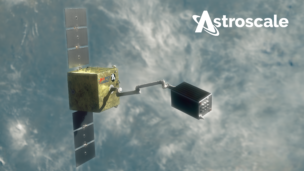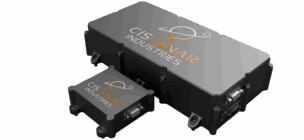Outpost, an LA-based Earth return startup, won a $33.2M STRATFI contract from the Air Force to develop its technology for hypersonic testing and reentry missions, the company announced yesterday.
The award will fund four missions for Outpost’s smaller Earth return vehicle, Ferryall, with enough funds left over to support the development of Outpost’s larger Carryall vehicle, which can carry up to 10 tons of cargo back to Earth.
On point: Outpost unveiled Carryall in July in an attempt to solve a problem that’s plagued the space industry for decades: it’s very hard to get things home safely from orbit.
Carryall, which is the size of a shipping container, will use a NASA-developed heat shield to reenter the atmosphere with extremely heavy payloads. At high altitudes, the spacecraft will deploy a robotically-controlled paraglider wing, which can land the payload anywhere on Earth within a five-meter target.
Bigger picture: The contract signals that the military is open to reconsidering how it moves cargo around the globe, including using space for point-to-point delivery and storage of vital logistics.
“[The contract] will directly contribute to protecting the lives of our military personnel, by delivering supplies and payloads through space. We eliminate the need for aviators to fly through dangerous airspace with this technology,” CEO Jason Dunn said in a statement.
Multi-ton, multi-use: Yesterday’s announcement is the latest in a string of recent national security contract wins for Outpost.
- The AFRL Rocket Cargo program awarded Outpost $1.8M this week to continue development of their Earth return technology.
- This month, the company won a $1.25M Space GARAGE contract with the Air Force to develop and test Ferryall and Carryall’s ability to store cargo on orbit for extended periods of time before delivering them anywhere on Earth.
What’s next: While these military contracts will help the company build out their technology and pave the path for flight heritage, Outpost ultimately intends the two vehicles to be dual-use, enabling point-to-point delivery for the military, as well as on-orbit testing and in-space manufacturing for commercial clients.
The company also unveiled its plan to manufacture fiber optic cables in space, which will result in fewer defects than those manufactured terrestrially, according to the company.




